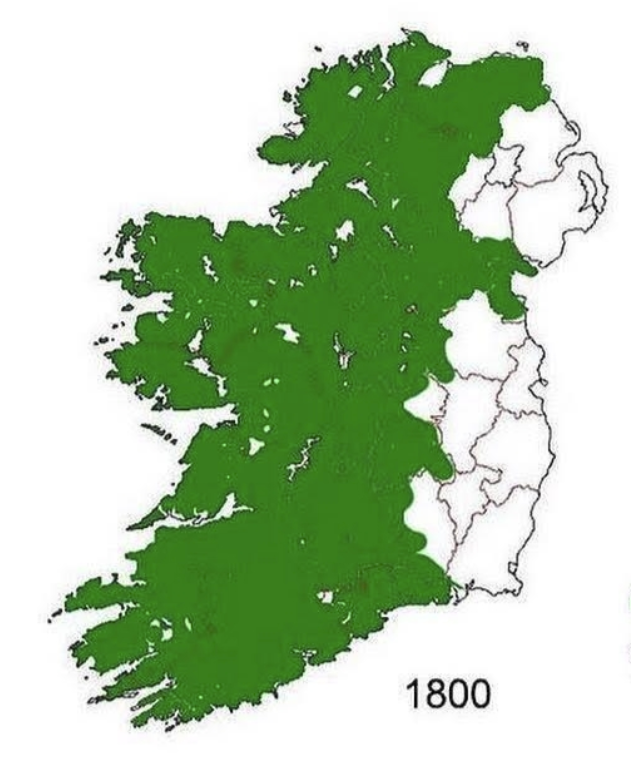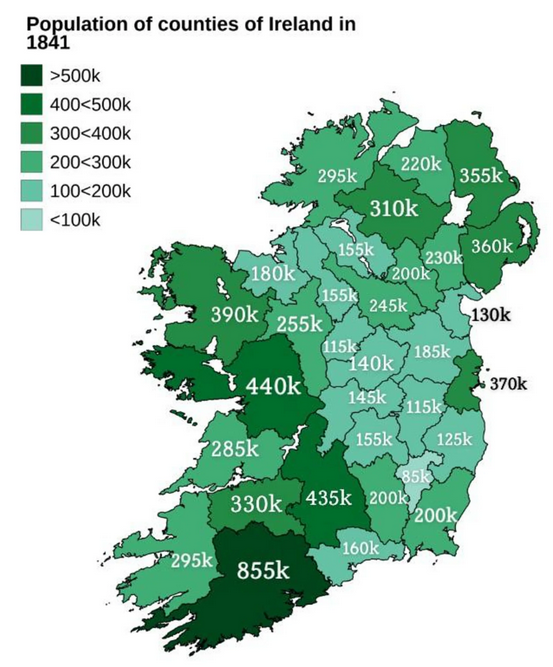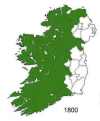And those Irish-speaking areas are Gaeltacht, places where Gaelic is the only language on road signs (since 2005) and where education is done through Gaelic. English tends to dominate because English is a lingua franca, making it useful for just about every industry, most Irish people who left the island (we were still net emigration for decades after independence) tended to emigrate to Britain, America, Canada and Australia where English was spoken (and in most cases the only official language), and crucially, most of the Gaeltacht are rural, meaning the population is older (as young people are more likely to migrate, there's no third-level institution on the level of the English-medium ones for example and work is harder to find in local communities) and generally on the decline.
There's also the issue of English-medium schools not teaching enough Gaelic for people to converse in it regularly (we pretty much didn't learn Gaelic until 4th or 5th Class in my primary school, and although my secondary school had a Gaelcholáiste (a Gaelic-medium secondary school) attached to it, we were mixed in 5th and 6th Year, meaning that they only did Gaelic and a couple of option subjects through Gaelic in the classroom for their Leaving Certificate (and even then, they could still choose to do the Leaving Cert through English, but the incentive for GC students to do the exams through Irish is getting a portion of the marks they missed - I can't remember the exact figures (I remember my Maths teacher explaining it to a GC student who sat behind me) but if you got 60% right, you'd be entitled to a portion of the 40% you got wrong as an incentive to do the exam through Gaelic).
A summary/tldr: English is a lingua franca, most people who leave/left went to English-speaking countries, a lot of the infrastructure aimed at preserving the language (Irish-language colleges - which are more like summer camps than actual universities, as they usually last three weeks during the summer and mainly involve immersing attendees in the language through sport, music and other activities) are mainly rural - though more Gaelscoileanna and Gaelcholáistí are being opened across the country since 2000 (iirc the Gaelcholáiste attached to the secondary school I attended opened in 2001). Third-level education institutions are mostly done through English, and the ones that are done through Gaelic mostly offer degrees relating to the language (i.e. diplomas in Gaelic, translation, language studies, communications, a few media and arts-related ones) while the English-language ones offer degrees for everything (i.e. medicine, business).








